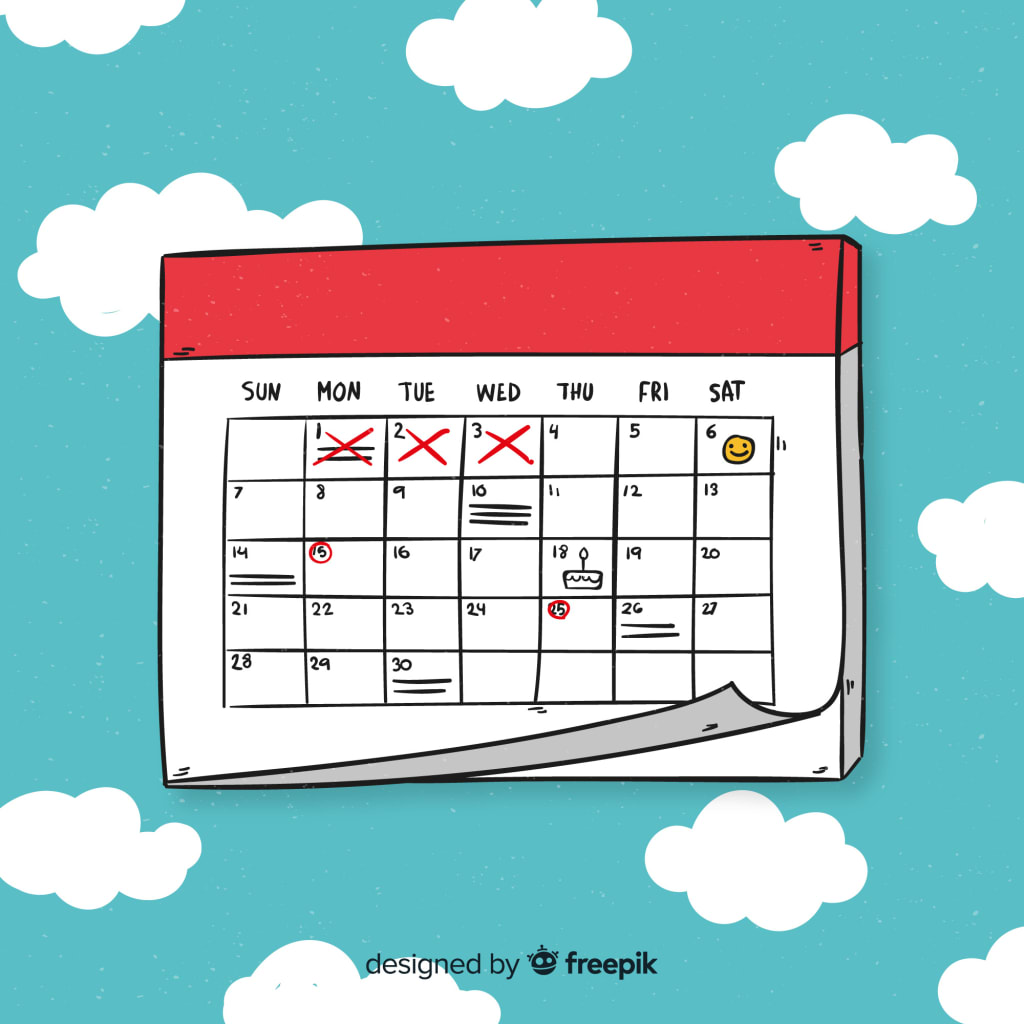Calendars,
a super important tool in human civilization

Calendars have been an integral part of human civilization for thousands of years, allowing us to plan and keep track of important events. Ancient civilizations developed their own unique calendars reflecting their needs and cultural beliefs, some following the cycles of the Moon and others focusing on the sun. From tracking time to marking special occasions, calendars have enabled us to navigate our lives with order and structure. In this article , we’ll take a closer look at the history of calendars, as well as how they’ve evolved over the centuries.
The earliest known calendar was created by the ancient Egyptians around 4,000 years ago and was based on lunar cycles. This calendar was later adopted and modified by other cultures such as the Babylonians and Greeks who added solar observations to mark seasons and longer periods of time.
The modern Gregorian calendar is the most widely used today, but there are still a number of other ancient calendars still in use. The Mayan calendar is perhaps the most famous, as it was a combination of both lunar and solar cycles and had different periods within each cycle. This intricate system was based on celestial observations and guided their daily lives, festivals, religious observances , and more.
The Aztec calendar is another example of a system based on both lunar and solar cycles. This calendar was carved into a stone called the “Sunstone”, depicting the different periods of time with intricate details. Like the Mayan calendar, the Aztec one was used to track religious festivals, holidays, and other cultural events.
Finally, there is the Chinese calendar, which has been used for centuries to guide Chinese festivities and traditions. Unlike the Gregorian calendar, it follows the moon’s cycles and every month begins with a new moon. This calendar also has an interesting feature – if the lunar months don’t quite match up with our regular year, an extra month is added in order to keep in sync with the seasons.
The Chinese calendar is also known for its Zodiac system. Each year in the Chinese calendar is assigned one of the 12 animals of the zodiac, which are said to represent traits and characteristics unique to that particular animal. It's believed that these animals were chosen based on an ancient legend of a great race between them. The clever rat was said to have won by hitching a ride on the back of the ox.
The Hindu calendar is also based on lunar cycles and is used to mark a variety of religious festivals, holidays, and important life events like weddings and housewarming ceremonies. This calendar is quite different from other ancient calendars as it takes into account solar months, lunar months, and even leap years.
From tracking time to marking special occasions, calendars have become an integral part of human life. They have evolved over the centuries, reflecting different cultures, beliefs, and customs. Ancient calendars such as the Egyptian, Mayan, Aztec, Chinese, and Hindu all had their own unique ways of keeping track of time and marking special events. Each one has its own characteristics that are still used today to guide people’s lives in many ways.
The use of calendars isn’t just limited to tracking time and marking special occasions. Religions and cultures around the world have long seen the calendar as a way to observe and celebrate their traditions. The Chinese calendar, for example, is celebrated with festivals such as the Lunar New Year and Dragon Boat Festival. Similarly, Hindus use the calendar to mark a variety of religious observances, including Diwali and Holi.
No matter how you use it, calendars have become an integral part of our lives. They connect us to our past, remind us of our shared human history, and provide a glimpse into the future. When we look at a calendar, it’s not just dates and numbers – it’s a way to celebrate the diversity of cultures around the world and embrace our shared humanity.
The use of calendars has been integral to the way we live for centuries, not just in terms of keeping track of time but also as a key part of many cultures and religions. Ancient civilizations used the stars, planets, and moon to construct their calendars and used them to mark important events, festivals, holidays, and auspicious times.
Today, many ancient calendars are still in use , and even more have been created to suit different cultural and religious needs. Whether you’re looking at the Chinese calendar for Lunar New Year or the Hindu calendar for Diwali, these calendars are a way to remain connected to our past and embrace the beauty of different cultures and traditions.
The importance of calendars goes beyond simply keeping track of time or marking special occasions. They are also used to communicate with the gods and harness their divine powers. In Hinduism, certain days of the month are considered particularly auspicious for certain activities such as worship, marriage, business dealings and housewarming ceremonies. Similarly, the Chinese calendar is believed to be a tool for fortune telling and contains traditional sayings to help guide people’s lives.
Calendars, whether ancient or modern, can be powerful tools for connecting with our shared human history and celebrating the diversity of cultures around the world. From the Egyptian calendar to the Hindu calendar, they are a reminder of our past and a way to stay connected to our present.
About the Creator
Enjoyed the story? Support the Creator.
Subscribe for free to receive all their stories in your feed. You could also pledge your support or give them a one-off tip, letting them know you appreciate their work.





Comments
There are no comments for this story
Be the first to respond and start the conversation.